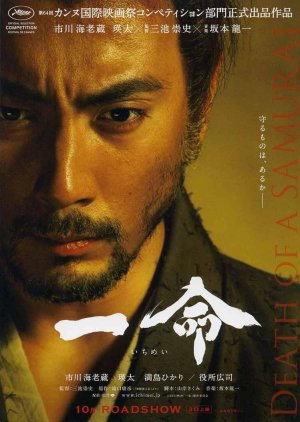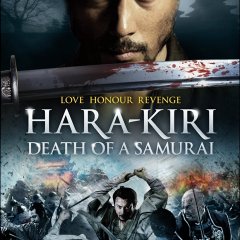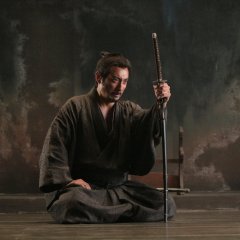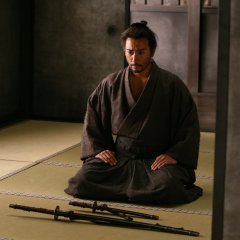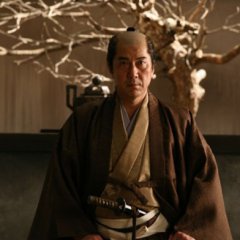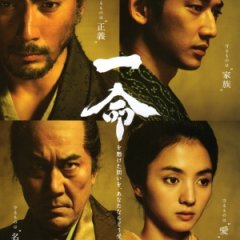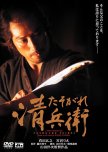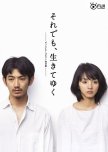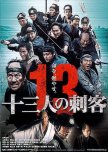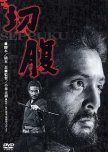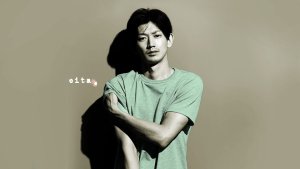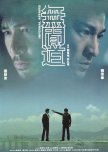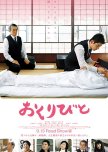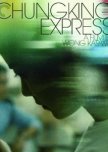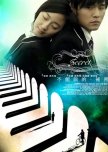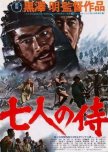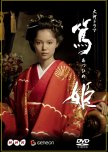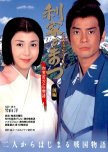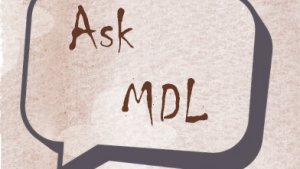 Ask MDL And Now For Something Different: Historical (September)
Ask MDL And Now For Something Different: Historical (September) - Português (Brasil)
- English
- magyar / magyar nyelv
- dansk
Onde assistir Hara-Kiri: Death of a Samurai
Grátis (sub)
Elenco e Créditos
- Ichikawa Ebizo Papel Principal
- EitaChiziiwa MotomePapel Secundário
- Mitsushima HikariMihoPapel Secundário
- Takenaka NaotoTajiriPapel Secundário
- Arai HirofumiMatsuzaki HayatonoshoPapel Secundário
- Aoki MunetakaOmodaka HikokuroPapel Secundário
Resenhas

In this review, I will compare both versions but I will also review this film for its own merits to those who don’t want to bother with the original although I highly advice you to watch the 1962 version. I won’t talk about history since I already mentioned it in Seppuku’s review. You just need to know that Harakiri means a ritual suicide and an honorable death for the Samurai who has to literally disembowel himself and die.
While Kobayashi’s Seppuku (aka Harakiri) was a dark revenge human samurai story, Miike’s Ichimei (aka Hara-Kiri: Death of a Samurai) was more like a dramatic view of the Samurai honor that aims for emotional engagement. Just like Miike and his screenwriter Kikumi Yamagishi explained in the press conference, this film is based on the source material, so it’s not a nihilist revenge tale like the original. It’s more about what is the true essence of the samurai moral code. I was glad to find out that the screenplay was modified comparing to the original because that’s the whole point of remaking something; not to produce a replicate.
This remake was more melodramatic than the original, it focused on family relationships and struggles to survive more than Kobayashi’s version which made it feel dramatic and touchy; I don’t even know if it’s a good or a bad thing but as I mentioned above, I truly appreciated many modifications of the screenwriting, although I was a bit disappointed with others such as the flashbacks. In the original film, they were a key element and very intriguing to pick up and follow, not to mention the smart storytelling but in this version; it felt wrong at some points. Even the narration of Motome’s story by the retainer of the Iyi clan was also flawed but the story itself was very well-done especially the suicide part. I also appreciated the presence of intensity and conflicts even in a lesser amount.
If I talk about the film itself without comparing it to the original, I would say: do not expect another “13 Assassins”. This is Miike’s follow up to the latter but they’re totally different; Hara-kiri is a Jidaigeki (historical storytelling that doesn’t focus on action and uses it in small amounts) while 13 Assassins is a Chambara (Samurai bloody films that focus on action and swordplay) so do not anticipate to see heads rolling and arms chopped off. Although Miike can do gore so well and his bloody films are well received, he actually decided to drift away from his usual dish this time and try the human melodrama and Samurai codes of honor instead. He was successful even if many people were bothered by the non-13 Assassins setting. If you only liked the latter for the action part, then I am sure that Ichimei won’t be to your liking.
The acting was good. At first, I was afraid to see Ichikawa Ebizo play the role of Tsugumo Hanshiro and being an elder to actors that are only five to seven years younger than him but I was proved wrong on that side; he did a great job with his role especially with his tone but I still insist that Tsugumo Hanshiro’s character belongs to Nakdai Tatsuya only even if Ebizo did a great job with it. Other actors were also good; Eita and Mitsushima Hikari are currently one of the best actors in Japan. The casting for this film is very smart, it doesn’t leave you room to complain a lot about the acting even if the original was full of unbeatable figures.
The characterization was a bit exaggerated and flawed since Miike wanted to humanize his characters even more than they already are. The characters were very emotionally involved in a brutal way, maybe it can be considered as a good thing but the sensations of tragedy in the original were the right amount for this human Samurai story.
Hara-Kiri: Death of a Samurai is a beautiful, attention-grabbing film if we talk about visuals. Miike is such a professional director as where to place his cameras and how to take the shots. He’s also a perfectionist when it comes to using silence as a fierce way to create intensity. The cinematography was artistically eye-catching but that doesn’t deduct any points from Kobayashi’s Harakiri even if it was produced back in 1962.
The music wasn’t as compelling as in the original. It was noticeably absent at times.
Watch this if:
-You dislike Japanese Samurai classics and want to watch something recently produced instead. If not, then you really should give Kobayashi’s masterpiece a try as soon as possible.
-You like Samurai human stories that don’t focus on action (Jidaigeki).
-You like Takashi Miike but beware that this is quite different from his other films.
-You like touching somber stories.
Do not watch if:
-You’re not a fan of remakes; just stick with the original.
-You’re expecting another 13 Assassins.
-You dislike Samurai films.
Taken as a whole, Miike’s version of Kobayashi’s massive hit is a somewhat elegant, straightforward and a dramatically faithful manner of retelling the 1962 revenge tale. It’s watchable and enjoyable despite its flaws.
Esta resenha foi útil para você?

